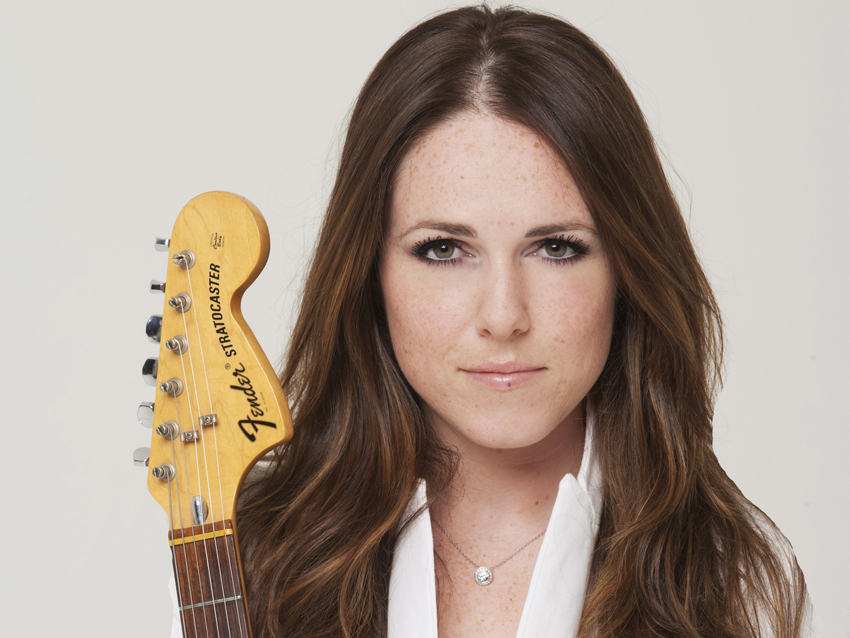
If Flesh And Blood were a debut album, it would be heralded as the work of an exciting and bold new blues artist. And, in many ways, it is, although in point of fact, it's Sandi Thom's fourth full-length release. The Scottish-born singer-songwriter and multi-instrumentalist burst on the scene back in 2006 with the pop-folk smash I Wish I Was A Punk Rocker (With Flowers In My Hair) and an accompanying number one album, Smile... It Confuses People.
Since her initial brush with fame, Thom has worked assiduously to be seen as a serious artist and not, in her words, "cookie-cutter pop." She's released two other albums, 2008's The Pink & The Lily and 2010's Merchants and Thieves, but she admits that neither discs truly represent her artistic sentiments. "It's been a difficult road to find my footing," she says. "And then there's the media, which doesn't really respect me at all, because I've weathered the storm and kept going."
The path should get a lot easier with the 17 September (in the UK) release of the Rich Robinson-produced Flesh And Blood. It's a beautifully sustained experience, packed with authentic, gutsy blues (a bruising rendition of Sonny Boy Williamson's Help Me, along with a hypnotic reading of Leadbelly's In The Pines), a glorious duet with Buffy Sainte-Marie on the latter's The Big Ones Get Away, and a searing, aching love letter to her boyfriend, blues superstar Joe Bonamassa, titled I Love You Like A Lunatic.
Thom sat down with MusicRadar to discuss how Flesh And Blood came about, what it was like to sing with her idol (and her mom's favorite), Buffy Sainte-Marie, and how she and Bonamassa don't want to mix work and play.
You've said that this album is the first one you've made that's really 'all about you.' What do you mean, exactly?
"This record came at a time for me both personally and professionally when I was going through a major shift in my life. I suppose I really was looking for someone to get involved to take all those elements and genres that I love and kind of bring them all together. I think with the first few albums you can tell that I've been on a bit of a journey to find what my sound is, starting off with more of a folk-pop sound and then moving into a more commercial sound, and then doing a 180 and doing a much more bluesy record.
"Working with Rich was a perfect fit for me, because he was able to take all of those elements and put them all together. We had a real synergy. Personally, I needed to break away from the ways I knew before, the people who were involved in my records - my ex-fiancé produced my first few albums. I just had to start from scratch."
Get the MusicRadar Newsletter
Want all the hottest music and gear news, reviews, deals, features and more, direct to your inbox? Sign up here.
Was having Joe Bonamassa produce ever a consideration?
"Joe and I share the same view it comes to our relationship, and we sort of have a rule that we don't mix church with state. He and I are in love with each other as people, and we both just happen to be musicians; we both share that love of music. We have great respect for one another and what we do. I think there's a point where you just don't cross that line. You can take a relationship and make it too much about your work and lose sight of the personal aspect and who you are and why you're in love. I don't want that to happen to us. We're just fine the way we are.
"So many people say, 'Why don't you do more together? Why don't you collaborate?' I don't know. We're on our own little adventure musically, and when we get together it's our time, and we just like to share it as people. And you know, stuff happens in the studio; people get into arguments. I don't want to have that with my best friend. So yeah, I probably learned from previous mistakes."

Thom with her custom Gibson Songwriter.
Even so, one has to imagine, when you're sitting around the house, that the two of you must share ideas and opinions on each others' music.
"Oh, absolutely. He'll play me the new BCC record in the car, and I'll play him something of mine, and sure, we'll talk about it. We have massive respect for each other's opinions. Why not ask that person next to you, especially when they have such great musical ability? He'll buy a new guitar and I'll play it, we'll test it out. There's some guitars of his that I like more than others."
Wait a minute… Joe buys guitars?
[laughs] "Yeah, he's been known to buy guitars."
Shocking! So how did you hook up with Rich Robinson?
"It was very organic, for lack of a better word. We became friends through a mutual acquaintance, a guy I know in Nashville, David Macius, who runs a record label called Thirty Tigers. He was the Crowes' first manager, and so he was really good friends with Rich. I went to see David when I was on some crusade, driving from New Orleans to Nashville in a convertible, and he gave me Rich's number and said to give him call, because he'd wanted to get into something new.
"So I just called him out of the blue and talked to him for ages, and we just got on really, really well, and we eventually met. We talked about the album and about concepts. And he said, 'OK, let's do a record.' We became very close very quickly."
Above: Sandi Thom - Help Me
How did you like the experience of recording at 16 Ton Studios in Nashville?
"I loved it. I think it's a brilliant studio. All the technical aspects are great. The keyboards they have, and the desk is really special - it's a cool place. Being right there in the heart of it all is really why we went to Nashville. Rich got a bunch of amazing players together. Yeah, it was a great honor to work in that studio."
Being from Scotland and working in Nashville, did you feel like a fish in very different water?
"I feel such an affiliation to parts of the States, and it's because I'm Scottish and that so many people have a heritage that's from Scotland and Ireland. Usually I get into conversations with people, and the first thing they say is, 'Where you from, Scotland.' Then you get this big old chat about them going to Scotland and rediscovering their roots. I didn't feel misplaced at all; I feel very at home in this country.
"Nashville is an amazing music town. It's like the music never stops. You go around and you hear people and meet people, and there's influences flying left right and center at you. It's a very inspiring place."
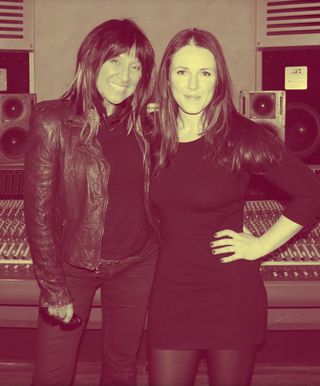
In the studio with Buffy Sainte-Marie (left). © Josiphine Riley
I love your singing with Buffy Sainte-Marie. What was the process of getting her involved?
"I discovered Buffy at six years old in the car with my mom. My mom was a huge fan, and she played me The Big Ones Get Away, the original. I was a shy girl - I had a voice, but didn't know how to use it - and I heard Buffy sing with such passion and intent. Everything she sang had a message in it. It was really powerful and it really moved me. I was a fan ever since.
"I really wanted to cover that song because it's a favorite, and I cut a version that's just me. Then I was talking to my mom, and she said, 'I don't know if this is even possible, but why don't you get in touch with her?' So I found her agent in Canada and tracked her down - she lives in Hawaii - and I sent her my version of the song, with just me singing it, and she came back and said she loved it. She called me a powerhouse. [laughs]
"She happened to be in London at a time when I was there, so I booked a studio, recorded her vocal, and then I rerecorded mine. It was amazing, because she's 70 years old, and she walked in with leathers and high heels, blue nail polish on - it was so cool. She takes the air out of the room; she's definitely got a presence. Maybe she's not a household name, but to me and some other people, she's a legend."
What led you to decide to cover In The Pines? Was it more Leadbelly or Nirvana?
"That was from Nirvana. I was a huge Nirvana fan when I was a kid. I didn't know it wasn't even their song. I went through the whole phase of wearing Doc Martens and dying my hair purple and all that. I loved Nirvana, Gun N' Roses - all those bands. But yeah, that's how I discovered In The Pines. Then I grew up and my knowledge of music got greater - I even wrote my thesis on the origins of popular music - and I went back and rediscovered where it all started, and then I realized that Leadbelly was the first person to record it. It's actually registered as an 'unknown author.'"
That might be what they call it "traditional."
"Yeah, it's registered as a traditional. So again, there were two reasons for me to cover it: One, I wanted to do that jump that Kurt did, that killer vocal; and two, I wanted to keep the life cycle going, cause that's what's at the heart of the blues - keeping that song alive and giving it to the next generation. I've adapted it and changed it and rearranged to give it a new lease on life."
Speaking of blues, you can't get better than Sonny Boy Williamson's Help Me.
"Yeah, and just from being a harp player and loving Sonny Boy, I wanted to emulate that sound. We always used to play that song in the set, and everybody loved it, and I'd make a big thing of it, taking solos and all that. When I said to Rich that I wanted it on the record, he wanted to remove it from that context, the 12-bar blues box; he wanted to take it somewhere different. So we changed it rhythmically. It was cool, because it changed the vocal, and then I got inspired to write some call-and-response harmony parts, and then I take my harmonica solo. I love the opening, it's just killer. It's such a great way to open the record. I'm really glad we were able to do the song and take it somewhere else."
The harmonica isn't an instrument a lot of people pick up. What made you gravitate towards it?
When I was younger, I was in a band called The Residents. Everybody in the group was older than me - I was 13 or so - and they were all like surrogate fathers to me. We did some songs that had harmonica parts here and there, so I said, 'Hey, let me try to play that. Let's see what else I can pick up on.' So I started playing it really, really young. It was more folk, more Bob Dylan.
"When I got more into the blues and started listening to Sonny Boy and Charlie Musselwhite, I started learning how to play blues harp. And it's actually taken me, like, 10 years to pull a single note out of it, because it's such a random little instrument, and it takes so much patience to learn. But I just love it. I love the sound that it makes, I love that it sets me apart. It's cool."
You ever think of getting one of those vests like John Popper from Blues Traveler? What's he got, 50 harmonicas in that thing?
[laughs] "He's cool. John's a fan, actually. We met a few months ago, and he said, 'The coolest thing about you is that you can play, and you don't look like a bag of shit, either.' And I was like, 'Well, thanks.' Then he said, 'No, but it's true. You're cute, and you can play.' It was a nice compliment."
I have to ask you about the song I Love You Like A Lunatic. You wrote it about Joe Bonamassa. What does he think of it?
"I don't know what he thinks. [laughs] I think he's embarrassed. Sometimes, you just come out with these lines that are so simple, and you think, That's brilliant! It's like… well, I definitely know nobody wrote that song before, that's for sure. It was just one of those songs that was easy to write, just me and a guitar, and it's very simple, simple chords, and the lyrics… it just is what it is.
"The song is about explaining the kind of love that everyone looks for, that all-consuming, crazy, make-you-slightly-insane love. I knew it was something people could identify with right away. It's great when you can sing a song, and you know that it's genuinely inspired by your own life and journey - you can sing it with a lot more feeling."
What kinds of guitars are you playing these days?
"I play a Gibson Songwriter. That's kind of my main acoustic. I've got a really nice custom one that I bought years ago in the UK. I've got another one that I got the other day, but it's not nearly as nice. With acoustics, I lean towards Gibsons. On the electric side, I play a Strat mainly. I pretty much go around the house and try a lot of different guitars - Strats just feel right. So I've got an '82 Strat - it's very heavy, though, black on black.
"I've also got a reissue of the old '50s ash-bodied Strats. They're kind of like my favorite, the '54 ash-bodied Strats. It's the nicest guitar you could ever have. Joe has one, and I play it every now and then, and every time I do I never want to let go of it."
Joe is a freelance journalist who has, over the past few decades, interviewed hundreds of guitarists for Guitar World, Guitar Player, MusicRadar and Classic Rock. He is also a former editor of Guitar World, contributing writer for Guitar Aficionado and VP of A&R for Island Records. He’s an enthusiastic guitarist, but he’s nowhere near the likes of the people he interviews. Surprisingly, his skills are more suited to the drums. If you need a drummer for your Beatles tribute band, look him up.
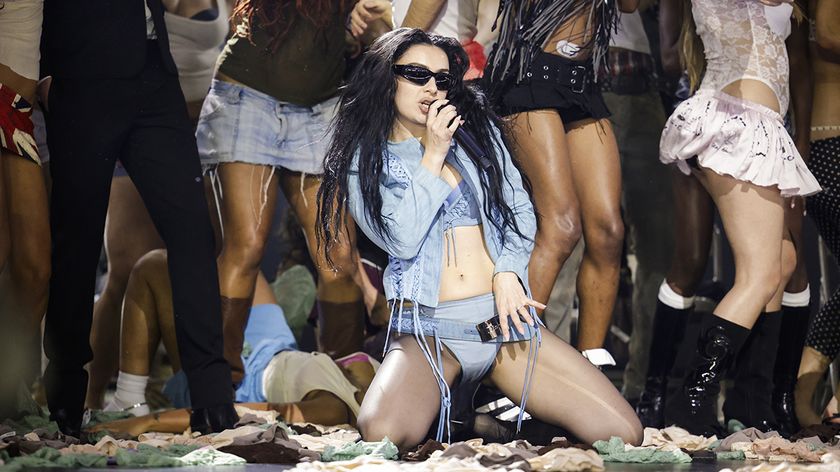
“The verse tricks you into thinking that it’s in a certain key and has this ‘simplistic’ musical language, but then it flips”: Charli XCX’s Brat collaborator Jon Shave on how they created Sympathy Is A Knife
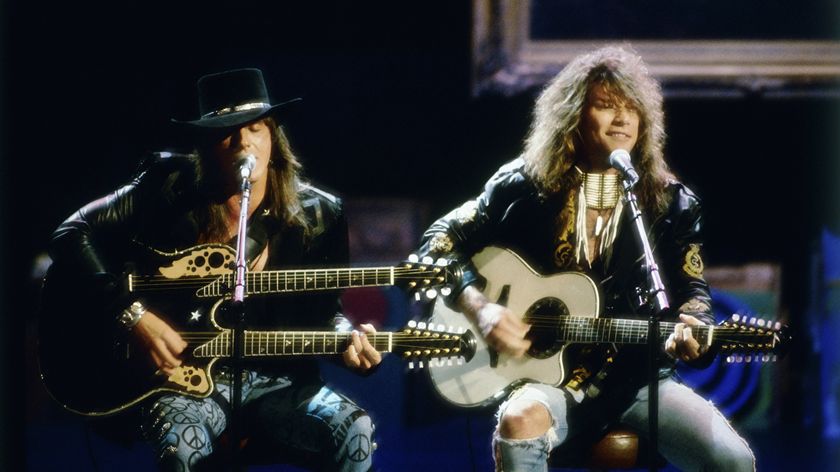
“I’ve seen a million faces and I’ve rocked them all!”: Was Bon Jovi’s 1989 acoustic performance really the inspiration for MTV Unplugged?

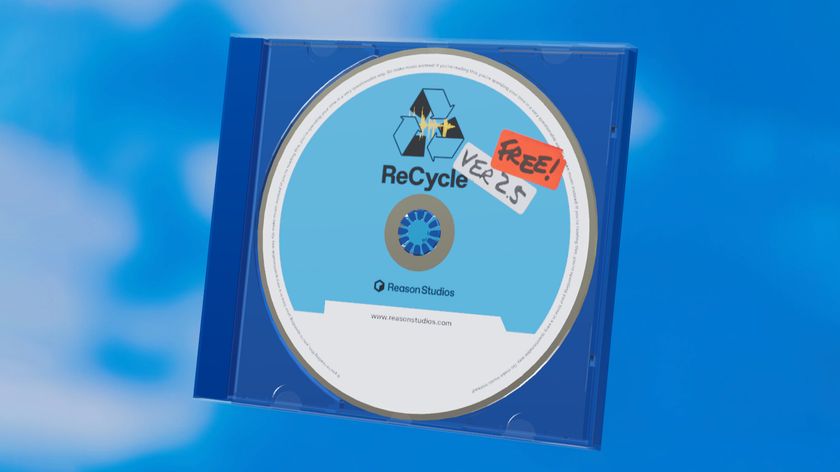
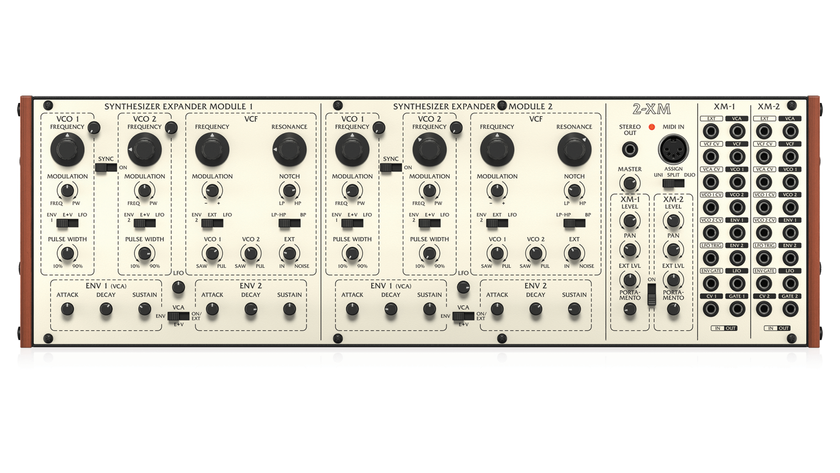
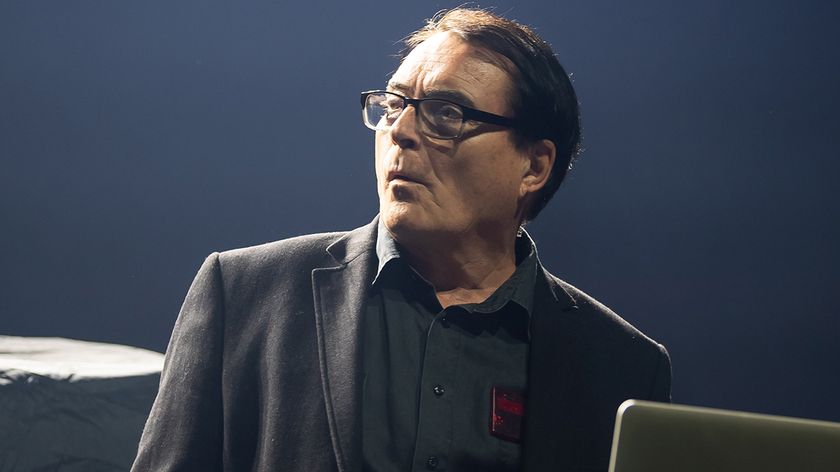
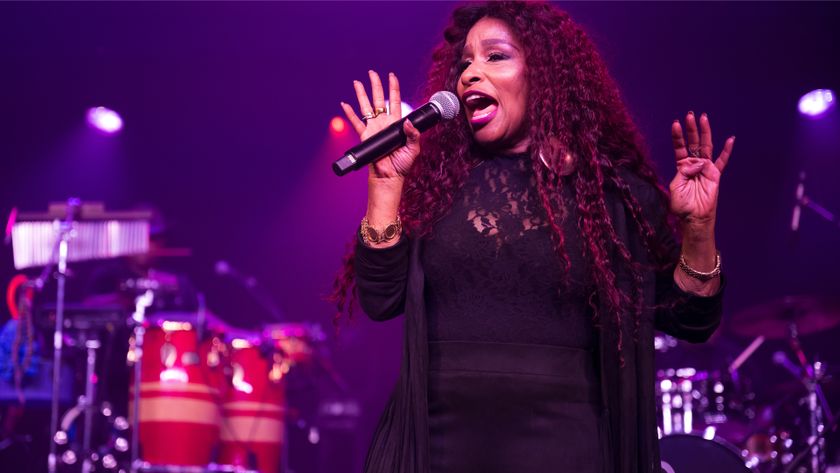
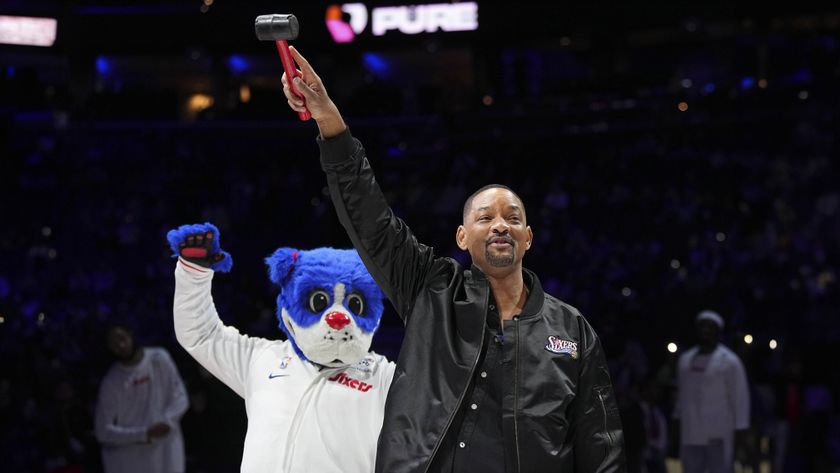


![Chris Hayes [left] wears a purple checked shirt and plays his 1957 Stratocaster in the studio; Michael J. Fox tears it up onstage as Marty McFly in the 1985 blockbuster Back To The Future.](https://cdn.mos.cms.futurecdn.net/nWZUSbFAwA6EqQdruLmXXh-840-80.jpg)